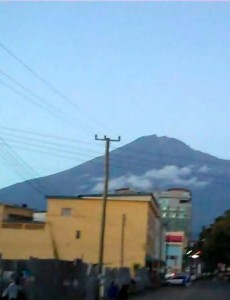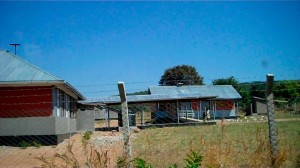Out of Africa
By True Ventures, July 2, 2010
Note: This was originally written by Summer TEC Intern JP Bonner on the True Ventures TEC Program Blog. It was reprinted here with his permission.
The craziest part about returning from a vacation is seeing how much everything has changed in your absence. The craziest part about returning from Africa is that everything seems like a vacation.
I’ve spent the last two weeks making my way from Arusha, Tanzania to Entebbe, Uganda. The trip had been planned since my sister began living and working in Tanzania two years ago, and our idea was to divide our time between projects, research, and adventure. But as any entrepreneur could have predicted, the initial idea evolved many times along the way.
At Pumpkinhead (release coming soon!) ideas evolve through testing, or reactions to product demos, or just redefining the service. But with limited resources, sometimes ideas evolve out of necessity. This is certainly the case when trekking Africa. Making our way to a hospital in Rubiya, my group of adventurers instead found ourselves push-starting a bus on a dirt road with potholes bigger than the Great Pit of Carkoon.
The trip itself was incredible. From touring the world’s top development projects, to sampling ten variations on fried corn dough in the same street, to learning from subsistence farmers about the geopolitics of patented crops, to watching unfamiliar stars over Lake Victoria, experiences were burned into my brain that I will have a hard time forgetting. Another burn that will be difficult to forget is the lobster-red sunburn I received above the cloudline in Arusha National Park.
After summiting Mt. Meru, a peak we dubbed the K2 of Africa, we set off to investigate the Mbola Millienium Village. The UN project is an effort to prove that the eight Millennium Development Goals can be met efficiently and sustainable across the African continent. The focus on enterprise was remarkable. Self-funding operations dominated the project literature, and many relied on bringing financing to the lowest level. Development has finally shifted from a charity-aid paradigm that treats people as victims to a market-based approach that empowers them as entrepreneurs.
Jumping straight from the world of Bay Area startups to East Africa street vendors forces you to make comparisons. Even through the smoke of a crowded bus stand, the similarities are vivid. For one thing, the vendors work hours every bit as demanding as the most overworked coders in San Francisco. Their efforts to differentiate themselves and engage customers are just as creative as any marketing guru.
They even employ targeted pricing schemes for different market segments: prices for a mzungu (traveller, or less euphemistically, whitey) range two to twenty times higher than prices for a local. And their opportunistic pricing strategies led me to the expensive discovery that they bargain as hard as any acquisition-minded VC.
Beyond the world of street vendors, there are truly impressive business achievements happening every day. Shipping firms that adapt to routes changing by the day. Wireless telecoms inventing entirely new billing models that consider customers’ needs and infrastructure limitations. Marketing battles more aggressive than any American holiday shopping season. Every day, innovators in Mwanza have the same quality brainwaves that make people rich in this town.
Without the surrounding support of a powerful economy, though, their efforts generally yield just enough to scrape by. People with all the ingenuity, drive and work ethic of a great entrepreneur are spending their lives trapped in poverty simply because they were born in the wrong place. Why?
If I knew, I’d be out making a solution. But as I return to the world of tech innovation (and hot showers) I’ll be keeping two things in mind.
The first: innovators grow everywhere, and whoever can connect them will have an advantage in the next round of globalization.




